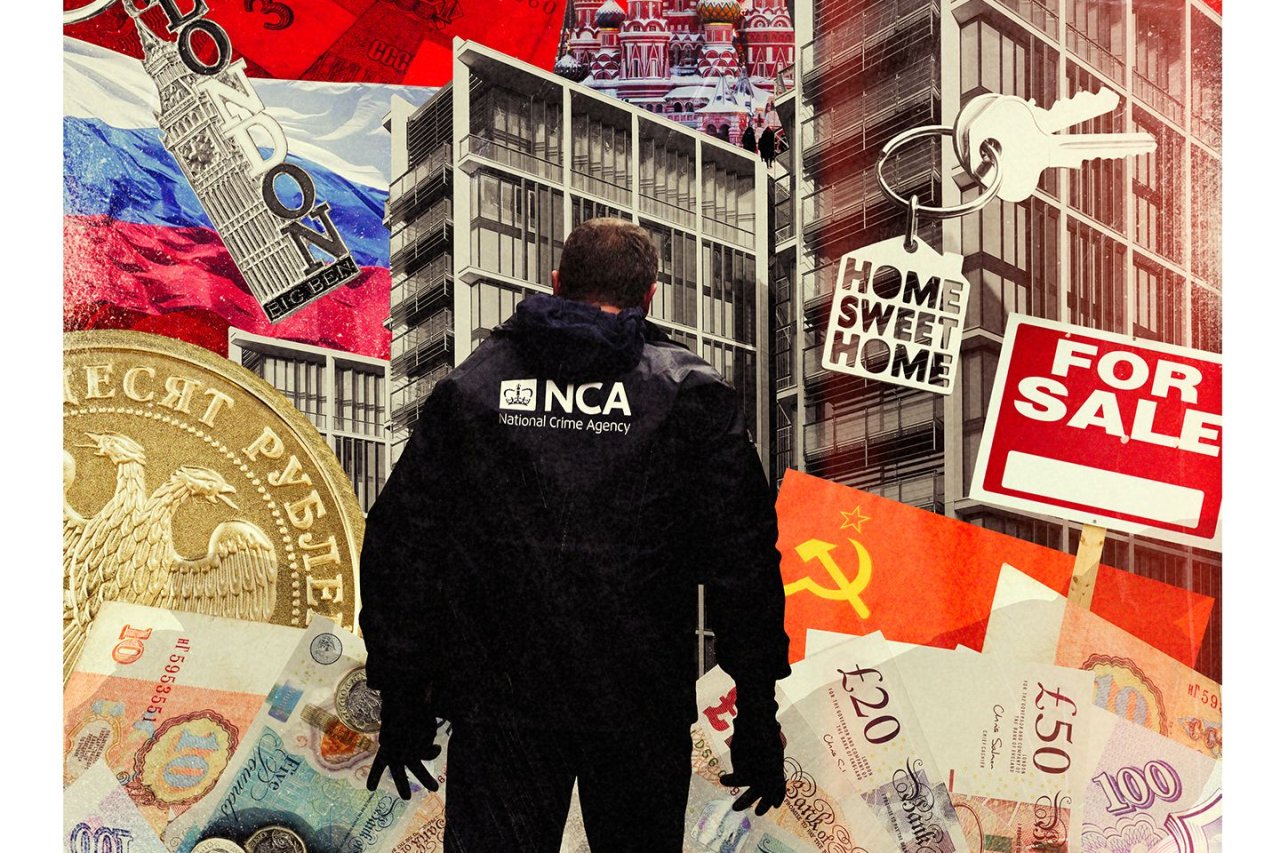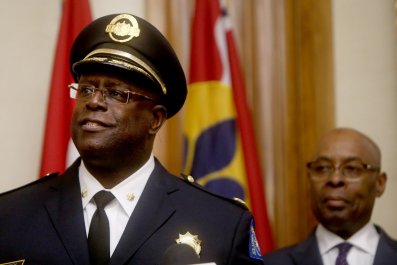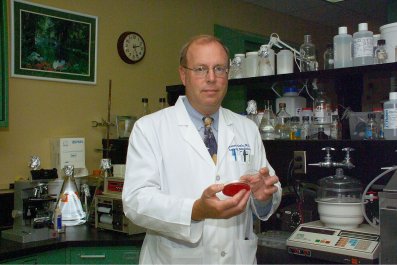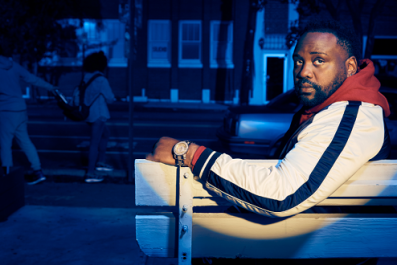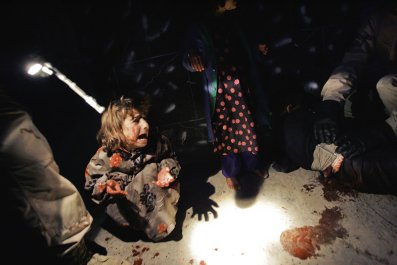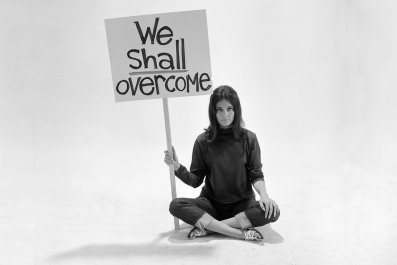On a recent night in Venice, hundreds piled into the magnificent Palazzo Pisani Moretta for a masked ball, at 3,500 euros ($4,300) a head. Guests wore lavish outfits and drank champagne as acrobats and musicians pranced about. But in one corner, a couple of middle-aged Russian men—one dressed as a Venetian doge, the other as an 18th-century dandy—sounded glum.
"It's a witch hunt," said the doge.
"More anti-Russian hysteria," agreed the dandy. "It's just like back home. Suddenly, I don't feel safe anymore."
The reason for their concerns? Sweeping new powers that U.K. lawmakers introduced earlier this year to crack down on the estimated £90 billion ($126 billion) currently being laundered through companies and luxury real estate in central London. Known as unexplained wealth orders, the new investigative powers allow British law enforcement to demand that any person holding property or assets worth more than £50,000 ($70,000) in the U.K. explain the origin of their wealth. The new powers—coupled with an aggressive mood in Parliament and among law enforcement authorities toward money laundering—threaten to destroy the low-regulation financial culture that until recently made London an attractive place to park often-dubious money for a swath of the world's elite. And particularly for oligarchs from the former Soviet Union.
"Basically, they are reversing the burden of proof," says Alexei (the Venetian dandy), a Russian businessman who has lived in London for over 20 years. (He asked for anonymity when discussing his financial affairs.) The British authorities "can label you guilty until you show that you are innocent. London was always an easy place to do business. Now, I think people will think twice about investing there."
Alexei complains that years of news about the Kremlin's various wrongdoings—from the hacking during the U.S. presidential election to the cheating at the Olympics—have created a culture in which ordinary Russian businesspeople are unfairly singled out as crooks. In the wake of the Trump-Russia "madness" and the recent BBC drama series McMafia—a show about the lives of Russian gangsters in London—"people think that all wealthy Russians are basically criminals," says Alexei.
He may be right. But over the past two decades, British banks and property have grown into one of the world's largest clearinghouses for dirty money, with some £90 billion being laundered last year, according to Britain's National Crime Agency. Anti-corruption activists in countries such as Syria and Nigeria have unearthed a vast trove of assets in London linked to politicians and oligarchs in their home countries. But many of those doing the laundering are former Soviet citizens.
"London has become the global center for laundering the money and reputations of Russian organized criminals," says Bill Browder, the biggest foreign stock market investor in Russia before Sergei Magnitsky, his lawyer, was arrested and killed in prison in 2008 after uncovering evidence of massive theft by Russian police and tax officials. (Browder was forced out of the country in 2009 and has since tried to target the assets of those involved in Magnitsky's death—including some £30 million [$42 million] laundered through 12 U.K. banks.)
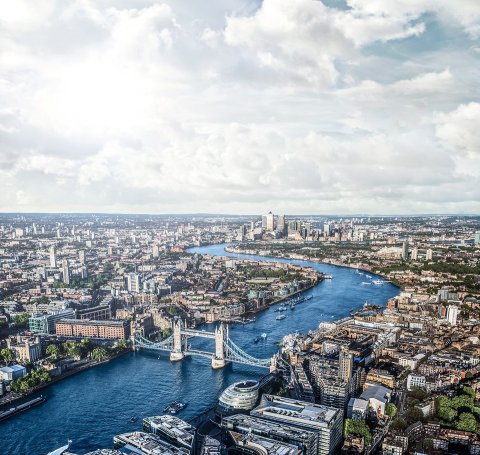
Recently, researchers at Global Witness and Transparency International documented systematic payments of money linked to Russian organized crime and corrupt officials through some 21 shell companies in London, a case known as "the Russian Laundromat." "What we know from the Laundromat exposé is that certainly there have been links to the [Russian] state," Ben Wallace, Britain's security minister, told The Times of London as he unveiled the new regulations. "The government's view is that we know what they are up to and we are not going to let it happen anymore."
Britain's crackdown on dirty money isn't specifically targeted at Russians or ex-Soviets. But some of the most powerful lobby groups pushing for the new laws have been anti-corruption nongovernmental organizations like Transparency International and Global Witness, which have all focused on money laundering from the former USSR. Transparency International's most recent report, published this past December, identifies more than 140 properties in London worth a total of £4.2 billion ($5.9 billion) "that were bought by individuals with suspicious wealth." That's not to mention the far larger number of shell companies incorporated in Britain that have been systematically used to launder vast sums with little or no oversight from the U.K. authorities.
More than a hundred of the suspicious companies Transparency International identified are based in a single building in greater London, 175 Darkes Lane, in the Hertfordshire commuter town of Potters Bar. A recent investigation by BBC Radio's File on 4 series revealed that most of these companies were clients of a business services company that provided a legal address in the U.K. and had no access to the accounts or transactions of the businesses supposedly being conducted from their office. Richard Smith, a blogger on the Naked Capitalism website, accessed some of the leaked accounts of several companies registered at Darkes Lane. He uncovered a network of transfers from Azerbaijan, Kazakhstan, Latvia and Cyprus. One company, which Smith did not name because the accounts were leaked illegally, showed a turnover of over £800 million ($1.1 billion) between 2012 and 2014—but it declared an official profit of just £27,000 ($38,000) before closing down without a trace.
Of course, there are plenty of legitimate businessmen, even in the world's most corrupt countries. But so far, British authorities haven't had the legal tools—or arguably the inclination—to distinguish among, say, an asylum-seeking Russian oligarch, a Vladimir Putin stooge and mafia crime boss. The London financial services lobby—which accounts for 7.2 percent of the U.K. economy, according to a 2017 parliamentary report—has also slowed down the effort to scrutinize the international money pouring into the city by resisting more regulation. Margaret Hodge, a lawmaker for the Labour Party, has long campaigned for a "balance to be struck between ease of incorporation to facilitate business growth" and proper scrutiny of ill-gotten money. Right now, Hodge recently told the BBC, the U.K. is erring "on the wrong side" of the balance.
Now, after years of lobbying by anti-corruption activists like Browder, the U.K. finally seems to be getting serious about investigating the origins of all the dubious money flowing through London's banks, law firms and real estate ventures. Aside from the new powers, the U.K. recently established an economic crimes czar and created a new bureau inside its National Crime Agency to focus on money laundering and other financial malfeasance. As Wallace, Britain's security minister, put it in January, "When we get to you, we will come for you, for your assets, and we will make the environment that you live in difficult."
The new powers follow a landmark law, passed by Parliament in 2016, that requires all companies to register "persons with significant control"—not the nominees but actual owners—of all companies registered at London's Companies House. But, as Murray Worthy, a senior activist at Global Witness, points out, there was "no mechanism for checking the veracity of the information provided by companies." A 2017 report by Transparency International found that only six people at Companies House police 4 million companies' compliance with company law. And around half of the 766 companies alleged to have been involved in high-end money laundering were based at just eight U.K. addresses.
Britain's new unexplained wealth orders are designed to plug loopholes for assets held in the U.K. Yet plenty remain. In practice, even the draconian new rules do little to control the billions of pounds held by U.K.-registered shell companies outside of Britain. "The real challenge of corruption or any kind of crime connected with shell companies is that [the company] is just a piece of paper. It's not tangible, it's just an address," says Jonathan Benton, a former head of the International Corruption Unit at the National Crime Agency. "The assets can be held on the other side of the world."
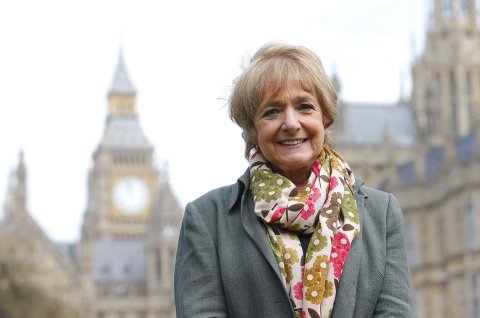
But the new rules at least make it more difficult for the world's corrupt elites to use U.K.-based properties and assets as a go-to piggy bank for stashing ill-gotten wealth. "For years, buying a property in London has been one of the easiest ways to store capital," says a senior London-based financial investigator for a major international asset-tracing company. (He was not authorized to speak on the record.) "There was just no downside. They thought that nobody would ever take an interest in where the money came from."
One example cited by the investigator was a £16 million ($22 million) house in London's Mayfair district, owned until last year by Rifaat al-Assad, the uncle of Syrian President Bashar al-Assad, in his own name. After human rights groups alleged that Assad embezzled more than $300 million of Syrian state funds, he sold the Mayfair house as well as another property in Sussex before a British court order freezing the family's assets could be enforced. (Rifaat al-Assad claimed that his money came from wealthy Arab backers.)
Legitimate businessmen are likely to complain that they're being unfairly profiled. And a legal quagmire awaits if British courts attempt to rule on the legality of clearly dubious deals, such as the Russian state's 1995 sell-off of billions of dollars of assets at fire-sale prices to allies of the Boris Yeltsin family, which created the first generation of Russian oligarchs. Such deals were considered legal at the time.
Nonetheless, London has suddenly become a far less inviting place for dirty money. And the British government claims it will prosecute even the most high-profile foreigners. Which could have a positive impact on the world's most corrupt regimes, where oligarchs often use their wealth to undermine democracy.
"Unexplained wealth orders can be used against everyone from a local drug trafficker to an international oligarch or overseas criminal," Wallace said in January. "We are going to go after iconic individuals."



